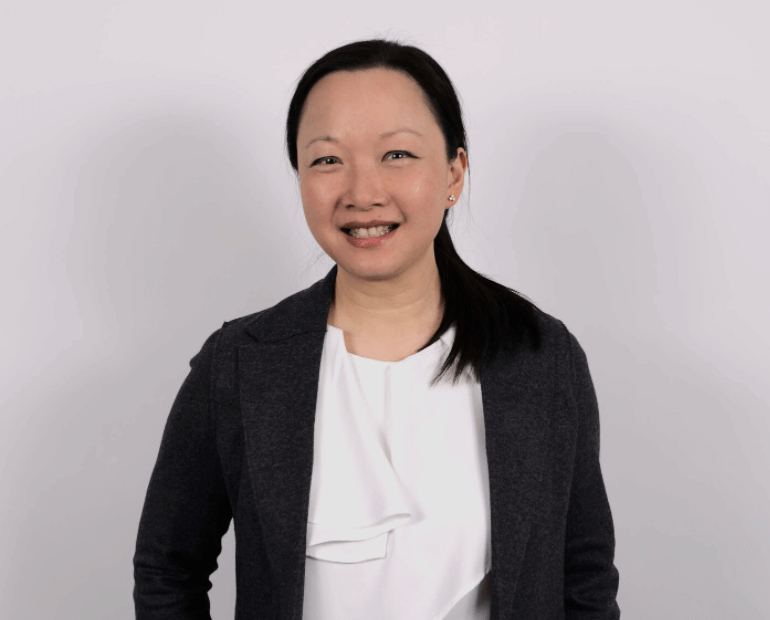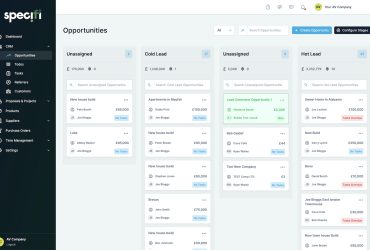The latest candidate in our series of Q&As with influential women in the technology business is Karen Cheng, P.Eng, Distinguished Engineer & Vice President, Enterprise Architecture, Kyndryl Canada, an IT infrastructure services provider that serves thousands of enterprise customers in more than 60 countries, designing, building, managing, and modernizing complex, mission-critical information systems.
Name: Karen Cheng, P.Eng
Job Title & Company: Distinguished Engineer and Vice President, Enterprise Architecture, Kyndryl Canada
Years in the Industry: 26+ Years
The Quote That Most Inspires You: I really like 2 quotes about change. “Change is the only constant.” The technology industry is full of disruptive innovation, so I need to constantly embrace reinvention in my own career and skillset to keep pace. “If nothing changes, nothing changes.” This quote reminds me to actively engage and lean into challenges. Be part of the solution, rather than just standing by.
What drew you to a career in the consumer and/or business technology industry?
Growing up, I was always interested in science – applied science in particular, and how it translated into real world use cases that could help people.
This affinity for the practical and tangible is what attracted me to industrial and systems engineering. The combination of traditional engineering studies with user-centred design resonated with me. Technology is embedded into a larger ecosystem where it co-exists to service people and businesses with a diverse set of needs and wants.
Even now, as an Enterprise IT Architect, I am focused on the “why” as much as the “how.” Many IT transformations do not reach their full potential because all the effort was spent preparing the technology for the people, and not preparing the people for the technology.
Have you encountered any roadblocks along the way that were related to your gender?
I often get asked this question by mentees. It’s not about men versus women. It’s not even about the workplace, per se. It’s life! I have been in stores, restaurants, even car dealerships where I felt I was not treated the same as other customers. Was it gender discrimination? I will never know, nor should I need to know. It’s really about learning how to gracefully navigate a world full of conscious and subconscious biases, never knowing what bias — sexism, racism, ageism, classism, et cetera — is in effect at any given moment. Just focus on yourself, focus on what you’re passionate about, and what you can accomplish.
What unique characteristics or perspective do you feel you bring to your organization as a woman?
My ability to explain complex concepts in plain, simple terms is a differentiator. It starts with knowing my audience, listening with empathy, and framing the content to be relevant and impactful. Being a good storyteller is not unique to women; everyone gets better at it through lived experience.
I remember when my daughter was eight years old and she asked me to describe my job as an IT Architect. To make it relatable, I asked her what her favourite mobile apps were. Her answer was quite predictable (YouTube, Minecraft, Pokémon). My answer was quite predictable too – I love any food delivery app that solves my dinner problem! As an example, I told her that IT Architects would think about how to build and distribute the food delivery app, how to keep it up 24/7, how to take payment securely, how to provide support in the event of a problem. IT architects would also think about the user experience from the diner, the delivery driver and the restaurant’s perspectives. (Now she thinks I design food apps!)

Technology is historically a male-dominated industry, yet the use of tech is fully embraced by women, and many studies even suggest that females are the primary buyers of tech in the home. What do you feel the technology industry needs to attract more women, particularly into high-level positions?
It’s important to start at the beginning by attracting female talent early in their careers to build a future executive pipeline. Ensure these women have access to mentors/sponsors, HR programs to nurture career advancement, and of course, all the things that promote employee retention, like flexible work arrangements, pay equity, and a corporate culture of diversity and inclusion. As someone who worked her way up to an executive appointment, I’ve seen Kyndryl’s commitment to investing in these initiatives.
If you had to sum up what it is like being a woman in this male-dominated technology industry in just a few words, what would you say?
Keep on keeping on – as every generation of women persevere and succeed, the needle is moved forward.
Are there women in the tech industry who inspire you?
I am inspired by male and female mentors who are bold and innovative in their own careers. They inspire me to get out of my comfort zone and try something new. This was especially true when I came back from parental leave and my technical knowledge was no longer current. These mentors counseled me to view change as opportunity, and with their support, I was able to reinvent myself as a subject matter expert in analytics and automation. It’s very important that I continue to pay it forward.
What are some of the misconceptions/myths about women working in the technology space that you’d like to dispel?
A general misconception is that you need to have an academic background in Science, Technology, Engineering and Math (STEM) in order to work in the technology industry. While I did take the traditional path of studying engineering and holding technical roles my entire career, I am a huge supporter of STEAM – including the Arts. Practicing my creative writing helps me become a better communicator and storyteller. All my childhood years of piano recitals and ear training have helped me become a better listener and presenter.
Diversity is not just about gender. Companies benefit greatly from diversity of thought. At Kyndryl, multi-disciplinary teams are made up of individuals from different backgrounds, disciplines, and perspectives to drive more creative problem solving and innovation, and ultimately, better outcomes.
What’s one thing you wish was done differently in the industry, and why?
The technology industry is full of silos – technology stack verticals, islands of data or funding, lack of cross-functional teams across IT and business organizations. Silos impede a company’s ability to dynamically respond to changes in the business or industry. Integrators – those who can connect the dots between technology, people, and process – are necessary to break down silos and drive true transformation.
Are you optimistic for the future in general and for the industry?
I am cautiously optimistic. As a technologist, I understand both the potential and the pitfalls. The Internet of Things allows us to interconnect at an unprecedented scale, but also exposes us to cybersecurity risks. GenAI allows us to create content in seconds, but what happens to original thought? Perhaps if I had let GenAI answer this Q&A, the resulting profile would have been more polished, but certainly less personal. Harnessing the power of technology responsibly and ethically will define our future and industry.









